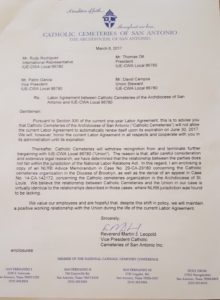World Series
The Working Catholic
by Bill Droel
Back in March 2017 I picked the Dodgers in our usually friendly betting pool. I have admired the team, dating from the era that Roger Kahn describes in The Boys of Summer (Harper Collins, 1971). I wasn’t around to experience the debut of Jackie Robinson (1919-1972) in April 1947. In time, however, I followed Robinson and his teammates. (Full disclosure: the Dodgers were never my absolute favorite team, nor are they now.)
42, Brian Helgeland’s inspiring 2013 movie about Robinson and the Dodger’s president and general manager Branch Rickey (1881-1965) downplays the role of Christian faith in the integration of Major League Baseball. That’s the opinion of Eric Metaxas, the author of Martin Luther (Penguin, 2017) and other biographies. It is also the opinion of Carl Erskine, a Dodger right-hander from 1948 to 1959.
42 Faith: the Rest of the Jackie Robinson Story by Ed Henry (Thomas Nelson, 2017) brings Robinson’s and Rickey’s Christian faith to the center of the drama. Both men were evangelicals who prayed the Scripture. Both men kept holy the Lord’s Day; Rickey by not working on Sunday, first as a player and then as an executive. And, both men took Christianity beyond the strictly private realm and applied their faith to their workday lives.
Henry writes about each man’s doubts. Would Robinson hit and field at the major league level? Would the Dodger players and staff unify behind him? Would Robinson stay calm in the face of taunting? Would the owners of other teams tolerate integration? At a moment of serious doubt, Henry reveals, Rickey drew upon his faith. All the preliminaries for signing Robinson were accomplished, Henry continues. Just then, Rickey had an anguished “dark night of the soul.” His reading of Scripture did not calm him. And so, he walked a short distance from his office to Plymouth Church. There with visible hesitation he “sought spiritual guidance” with Rev. L Wendell Fifield (1891-1964). Rickey, as history knows, then decided to act.
Don’t get the wrong impression. Yes, Christianity was a major motive behind the integration of baseball, as it was during the subsequent Civil Rights era. But keep in mind that everyone does everything for mixed motives. Robinson wanted to further his athletic achievements and he wanted to use baseball as a means to financially support a family. In principle Rickey favored integration but he also wanted to make money by fielding a winning team.
Jimmy Breslin (1928-2017) features faith in his biography Branch Rickey (Penguin, 2011). But faith had to mix with money to make the April 1947 breakthrough possible. In 1943 the Dodgers were $800,000 in debt to Brooklyn Trust Bank. Rickey needed more money to scout colleges and minor leagues for prospects, including blacks. So Rickey, an evangelical political conservative, went to the bank to meet its president George McLaughlin, a Catholic political liberal. Neither man was into moralizing or into converting individuals. So Rickey consciously avoided the morality of integration at the bank meeting. He simply said the scouting would include black players. “What McLaughlin believes doesn’t matter,” Rickey felt. “How he behaves is what counts.”
Here is the liberal bank executive’s interesting reply to Rickey: “If you want to do this to get a beat on the other teams and make some money, let’s do it. But if you want to do this for some social change, forget it.” Both the bank executive and the baseball executive were men of faith and both believed that Christianity compelled racial inclusion. But both men were realists who knew that a black (eventually Robinson) was not being scouted to preach integration. He was paid to play baseball excellently and in the process to offer an example to bigots.
It is wrong to say that baseball would not have integrated without the faith of Robinson and Rickey. This notion does not fully appreciate mixed motives. Other executives and players would have integrated the sport. In fact, Bill Veeck (1914-1986), who became a Catholic, was prepared to have black players on the Philadelphia Phillies in 1943—four years ahead of the Dodgers. Owners of other teams blocked Veeck at the time. In July 1947, less than four months after Robinson’s debut, Veeck signed Larry Doby (1923-2003) and thereby integrated his Cleveland Indians.
The faith of Doby, Veeck, Robinson and Rickey, as prudently applied in their workaday settings, is still instructive these weeks and months as professional sports and our entire culture grapple with race relations.
Droel edits INITIATIVES (PO Box 291102, Chicago, IL 60629).

